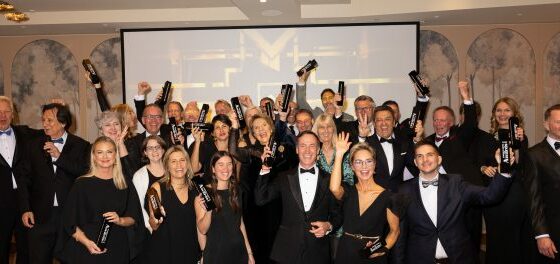The wellness movement’s influence on travel and hospitality is undeniable. What was once a niche market has evolved into a central expectation for many travelers, driving a surge in demand for hotels and resorts that offer authentic wellness experiences. But as more properties promote themselves as wellness destinations, the question arises: How do travelers distinguish between true wellness-focused stays and mere marketing? This is where wellness accreditation becomes crucial to mitigating “wellness-washing,” providing an essential framework for both hoteliers and travelers to navigate this growing landscape.
The hospitality industry is at a pivotal moment: Wellness tourism has exploded, fueled by a societal shift toward health, self-care and personal well-being. For many travelers, a vacation is no longer just about relaxation, leisure and escape, but about engaging with their mental, physical and spiritual health. Consider the recent launch by Sam Nazarian and Tony Robbins of longevity clubs and hotels as one example. Their initiative aims to redefine wellness by focusing on life extension and holistic health practices, making it clear that wellness is no longer limited to spa services and fitness centers. It reflects a larger trend where hospitality is becoming deeply intertwined with personal well-being. However, even with high-profile projects like these, travelers still need to know that the experiences offered are authentic and genuinely meet their needs.

This is where certification comes in. It serves as a third-party validation that a hotel’s wellness offerings are not just buzzwords, but rooted in rigorous, evidence-based standards. This has significant implications for the entire hospitality ecosystem—benefiting not only hotels and resorts but the travelers they serve.
From the hoteliers’ perspective, wellness certification is a strategic advantage. In an industry where competition is fierce, standing out is crucial. Certification provides that point of differentiation, signaling to travelers that the property has undergone thorough evaluation and adheres to strict wellness standards. This goes beyond aesthetics and spa offerings; it covers everything from practices and amenities to the quality of the guest experience, ensuring that wellness is core to the property’s operations.
Accreditation also enhances a hotel’s credibility. In a world where consumers are increasingly skeptical of unverified claims, certification tells guests that their wellness needs will be met with integrity. It builds confidence and trust, which are essential to long-term loyalty. For travelers, especially those deeply invested in their health and well-being, an accredited hotel is far more appealing than one that lacks third-party validation.

Beyond trust, wellness certification helps hotels achieve operational excellence. The process of certification often requires hoteliers to re-examine their execution, identify areas for improvement and implement best practices. This can lead to a more streamlined operation, better staff engagement and, ultimately, a more efficient business. In many cases, the audit process itself highlights opportunities to enhance guest satisfaction and profitability by aligning the hotel’s services more closely with the desires of wellness-intentioned travelers.
For travelers, accreditation offers peace of mind in an increasingly complex marketplace. As more properties claim to offer wellness experiences, travelers can become overwhelmed during the planning and booking process, left wondering who to trust. Certification cuts through the noise by ensuring that a hotel delivers on its wellness promises. Whether it’s a focus on mindfulness, nutrition, fitness or eco-practices, an accredited hotel guarantees an immersive experience that supports guests’ well-being in meaningful, tangible ways.
Wellness certification goes beyond the self and takes a deeper dive into the property’s integrated operational health including community and environmental impacts, from promoting local artists and preserving cultures to local food sourcing and waste reduction. Travelers benefit from knowing that the property they’ve chosen has been optimized not only for their personal wellness but also for the health of the planet and its inhabitants. In this way, certification serves a dual purpose—promoting both individual and collective wellness, the ethos of holistic well-being.
Looking ahead, the role of wellness in hospitality will continue to grow. As more travelers seek out wellness experiences that are authentic and transformative, hotels that invest in certification will be positioned to lead this space. For hoteliers, certification isn’t just a marketing tool; it’s a pathway to operational excellence, people (guest, staff, community) satisfaction and long-term success. For travelers, it offers the assurance that their well-being is truly at the heart of their stay.
The future of hospitality will be defined by wellness and wellness accreditation can help standardize and guide travelers through this new landscape. As the market continues to evolve, those who embrace certification will not only meet the growing demand, but will also be part of a larger movement, setting a new benchmark for excellence in hospitality.
Robin Ruiz is the founder and CEO of WITT (Wellness in Travel & Tourism), which sets global standards for hotels and resorts committed to delivering authentic wellness experiences.









